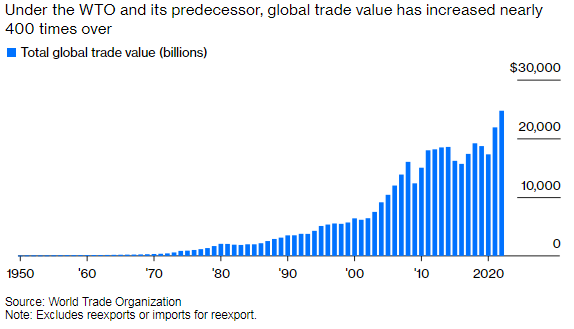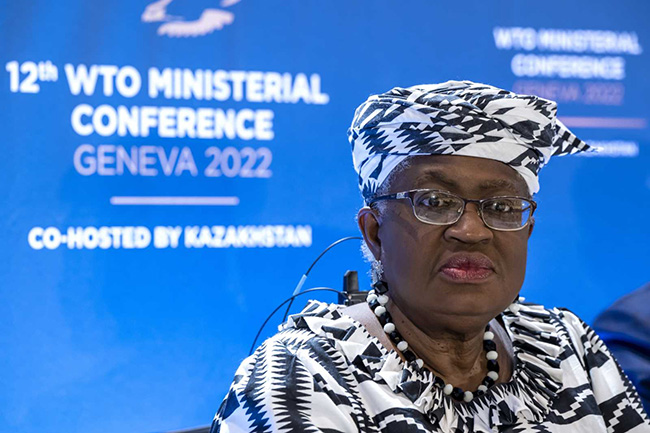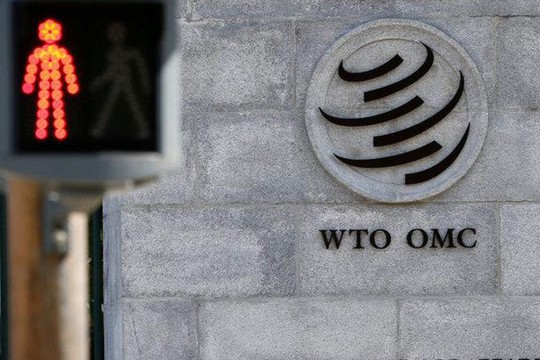At one point, last week’s 13th biennial conference of the World Trade Organization looked as though it might be the last. Talks dragged fruitlessly into the weekend, and outright collapse seemed likely. At the last minute, an effigy of a deal was done. Almost entirely devoid of content, it merely postponed what now seems the WTO’s likely fate, Bloomberg stresses.
Reviving this institution is both necessary and achievable — but it won’t happen until the world’s most influential governments, and the US above all, choose to try.
Lately they’ve resolved to do the opposite. Countries have been deliberately accelerating the WTO’s decay, avowedly choosing domestic industrial policy and managed trade over market-based cooperation. In due course, they’ll see how grave a mistake this is. By then, the damage wrought by global economic fragmentation could be enormous, and it might not be easily repaired.
There have long been legitimate complaints about the WTO’s systems and procedures. The organization exists to set and enforce the rules that govern international trade. But as the nature of trade evolves, rules need adjusting; governments that break those rules need to be held to account, or the good-faith pursuit of mutual interest breaks down. In both respects, the WTO has long been underperforming.
The question is – Why?
For decades after 1945, strong US leadership combined with a global consensus on the benefits of cooperation expanded trade enormously — guided first by the General Agreement on Tariffs and Trade, then by its successor, the WTO. The results were just short of miraculous: Living standards improved worldwide, especially in developing countries. Reforms prompted by the system typically led to added economic growth of 1.0 to 1.5 percentage points a year, summing to increases in income of 10% to 20% over the course of a decade.

Yet a new consensus soon began to question these achievements, casting trade in pre-modern mercantilist terms as an essentially zero-sum endeavor. The WTO’s rules failed to take account of new economic challenges and new forms of commerce. Neglect, brinkmanship, domestic politics and a requirement that new agreements command unanimous support all combined to paralyze the institution — seeming, in turn, to validate critics’ complaints.
One element of last week’s fiasco perfectly illustrated the problem. Since 1998, the WTO’s members have agreed not to impose tariffs on digital commerce. Meeting by meeting, they’ve extended this moratorium. Last week, India, Indonesia and South Africa opposed a further extension, partly because they want the revenue that tariffs would generate but also to give themselves leverage over other contentious issues. At the last minute, digital free trade was extended for another two years, but apparently with the presumption that it will then expire.
The good news, said WTO Director-General Ngozi Okonjo-Iweala (photo), is that businesses will have “time to adjust.”

Negotiations on farm subsidies and overfishing got nowhere. One of the WTO’s most pressing challenges — restoring the dispute-settlement process that the US has crippled by refusing to appoint judges to its appellate body — was left unresolved. US Trade Representative Katherine Tai signaled her commitment to these and other issues by leaving the meeting early. President Joe Biden seems pleased with this negligence. His likely challenger in November’s election would go one better, advocating across-the-board tariffs that would flatly violate core WTO principles and make the organization’s death official.
It’s a shame! – Bloomberg exclaims.
read more in our Telegram-channel https://t.me/The_International_Affairs

 11:27 12.03.2024 •
11:27 12.03.2024 •























